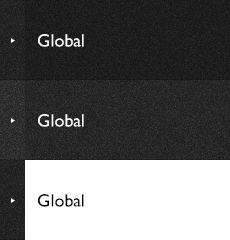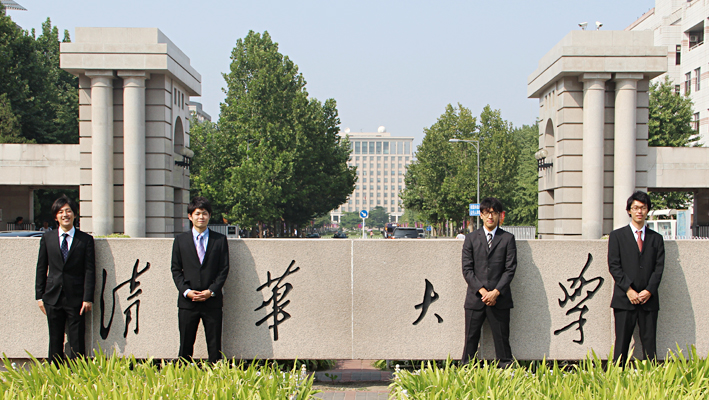
The 8th cohort of Tokyo Tech students
in front of the Main Gate at Tsinghua University
Outline of the Program
There is a growing concern over the shortage of human resources who underpin the Japan-China relationship in economic and industrial quarters. Various barriers, such as language and culture, contribute to this shortage of persons with an understanding of the differences between the two countries, who could then lead the way toward a future of better relations.
In the Tokyo Tech-Tsinghua University Joint Graduate Program, Tokyo Institute of Technology (Tokyo Tech) offers graduate-level education in cooperation with Tsinghua University, one of the leading universities in China. The program aims to cultivate young people who not only have specialized knowledge and skills, as well as command Japanese, Chinese and English, but who also have a deep familiarity with the culture and customs of both Japan and China.
The program was launched in 2004 as a dual master's degree program offered in three courses: the Nanotechnology Course, the Bioscience and Biotechnology Course, and the Decision Science and Technology Course. Students enroll simultaneously at both Tokyo Tech and Tsinghua University as regular students, study under the supervision of academic supervisors at both universities, and earn master's degrees from both universities. The program takes two and a half years for Tokyo Tech students and three years for Tsinghua University students to complete. A similar program for doctoral students was launched in 2007 in which students earn a degree from one of the universities after three years of studying under the joint supervision of faculty members from both universities.
What is a dual degree program?
In a dual degree program, students are awarded degrees from both their home university and a partner university upon the completion of the joint program. Advantages of earning a dual degree are manifold. Students acquire expertise in two related areas, prove their global versatility by completing their studies at two multinational universities, and receive recognition for this in the international job market.
Additionally, the program enhances the global versatility of Japanese higher education and promotes systematic and well-designed exchanges of human resources.
Model course of study for the master's program in the Nanotechnology Course
| |
Period of stay in Japan |
|
|
| |
Period of stay in China |
| |
Tokyo Tech students |
Tsinghua University students |
| 1st-year |
|
- Mar.Entrance examination (Tsinghua)
|
|
|
|
|
|
|
| |
|
| |
|
| 2nd-year |
|
|
|
|
|
|
|
|
| |
|
| 3rd-year |
|
|
| |
|
|
|
|
| |
|
| |
|
| 4th-year |
|
|
|
|
|
|
|
|
|
|
|
| |
|
(Periods of stay in China and Japan differ depending on the course of study.)
Course Departments and Schools
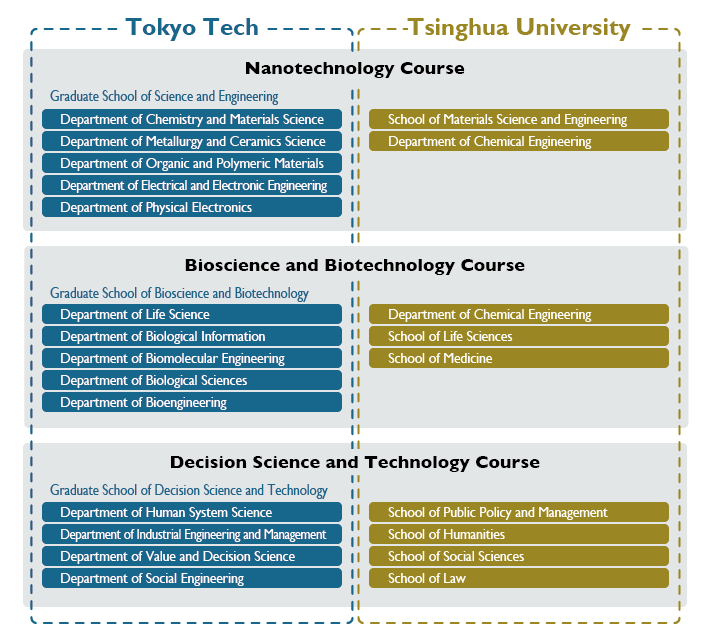
Program Achievements
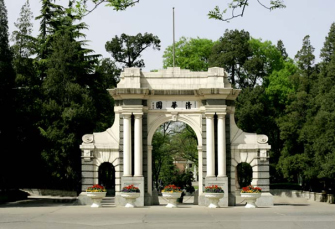
Gate at Tsinghua Garden
Between the launch of the Tokyo Tech-Tsinghua University Joint Graduate Program and October 2013, 160 students from the two universities have enrolled in the program and about 100 students have completed it. This is Japan's first dual degree master's program and a visionary global model. Students who have completed the program are currently either outstanding performers at leading companies worldwide or conducting cutting-edge research in laboratories at top universities and research institutes around the world.
Exchange Events
The program holds welcome and farewell events to promote exchanges between students of both universities. Tokyo Tech's welcome event is for incoming Tsinghua students and returning Tokyo Tech students. The farewell event is a send-off for departing Tsinghua students and outgoing Tokyo Tech students headed for China. These events represent precious opportunities for sponsoring companies, guests, the president of Tokyo Tech, faculty members, program students from both universities, program graduates who have taken leading roles in society, and other members of the program to get together.
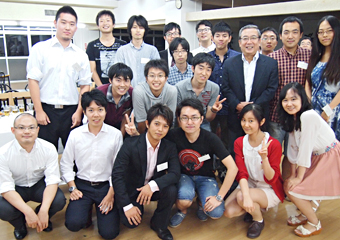
then-President Mishima with program students on August 6, 2013
Recently, discord between Japan and China has erupted. However, in academia, especially in the Tokyo Tech-Tsinghua University Joint Graduate Program, close communication still thrives in the joint research, human interactions and information sharing that goes on. Participants build awareness of these ongoing exchanges at the events.
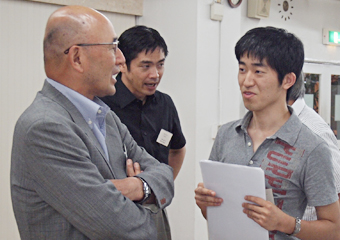
Student and representative from a sponsoring
company engaged in dialogue
Sponsoring companies encourage students to become leaders of Japan and China, which are inextricably linked. The program office, in cooperation with participating students, faculty and staff members, is redoubling its efforts to make the program even better.
Messages from Participating Students
Yoshiaki Oda, Nanotechnology Course, 8th cohort Tokyo Tech student
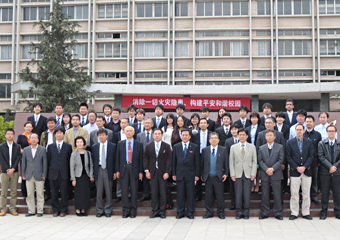
Group photo at the 2013 Workshops on
Nanomaterials Kunming, China
I participated in the Joint Program's Nanotechnology Course symposium, the 2013 Tsinghua University-Tokyo Institute of Technology-Kunming University of Science & Technology Workshops on Nanomaterials, held in Kunming city in China. The symposium, which is held annually and rotates between Japan and China, is for presenting research findings and fostering communication. Most of the presenters are participating students and faculty members in the program. This year the symposium was held under the joint sponsorship of three universities including Kunming University of Science and Technology in Kunming city of Yunnan province. Faculty members and students made short presentations and participated in poster sessions to share their advanced research results. I spent four meaningful days with the other participants deepening our understanding of each other's culture, exchanging opinions and learning about each other's research.
I stayed in China as part of the program and studied one year at Tsinghua University in Beijing. In this program of studying and conducting research both in Japan and China, I felt fully supported in my life, my studies and in the language. I was free from worry. Chinese students were kind to me and they worried about me when the Japan-China relationship deteriorated during my stay in China. I hope more and more people will take an interest in this program. I anticipate that the program will see further developments as will the relationship between Tokyo Tech and Tsinghua University.
Yuichi Morikawa, Bioscience and Biotechnology Course, 8th cohort Tokyo Tech student
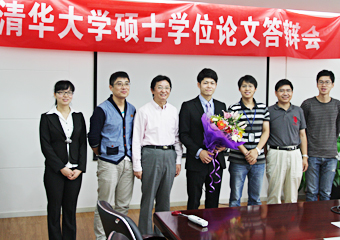
Master's thesis presentation at Tsinghua University
I applied for the Tokyo Tech-Tsinghua University Joint Graduate Program, because I was interested in living and conducting research in a rapidly growing country like China. I also wanted to challenge myself through the various and different experiences I was sure I would have in China. At first everything, including daily life, research and lectures, felt difficult in China due to the language barrier. However, I eventually overcame these difficulties thanks to the kind support shown me from faculty members and students.
During the day I devoted myself to experiments on biofuel at the laboratory with Chinese students and attended lectures. At night I would go out for drinks with international students from all over the world. I found that the major advantage of studying abroad is that every time I confronted a language or cultural barrier, I grew as a person. In the program I tried very hard while in China and had pleasant, frustrating and delightful experiences. I would like to leverage these experiences and become a person who is sought out any place in the world.
Haoxin Zhou, Decision Science and Technology Course, 9th cohort Tsinghua University student
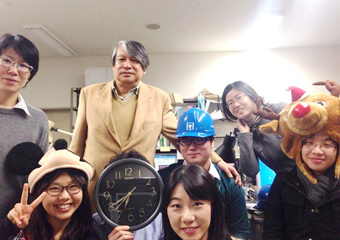
With faculty and lab members
I had long aspired to study at Tokyo Tech due to all the enjoyable experiences I had had as an undergraduate with Tokyo Tech students studying at Tsinghua University. As I already knew about the Tokyo Tech-Tsinghua University Joint Graduate Program when I was getting ready to apply to graduate school, I took the challenge and applied for it.
At Tokyo Tech, I usually attend lectures and conduct research or study in the laboratory. All the faculty members and students are kind and I lead a happy life every day. At the weekly seminars in the department, I give presentations or listen to other members' research reports, which are informative and provide me with good experiences. Tsinghua students studying at Tokyo Tech like myself are supported by Tokyo Tech students, with whom we studied at Tsinghua University last year and who are now back in Tokyo. They give advice on Japanese life and culture, and sometimes we hang out on holidays. I find it very nice that we support one another and have been able to forge friendships regardless of our nationalities.
Support from Companies
The Tokyo Tech-Tsinghua University Joint Graduate Program operates with the support of many companies. The student scholarship for the program is also backed by sponsoring companies. These companies and Tokyo Tech conduct laboratory tours at the Institute and at the various companies, carry out joint research, cosponsor symposia, and exchange the latest research information and human resources, in addition to supporting students in the program.
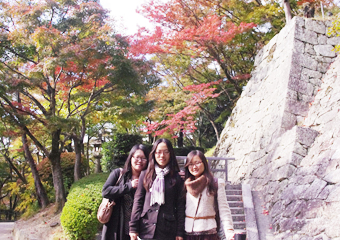
Program students at Kiyomizu Temple in Kyoto
On a company laboratory tour in 2012, almost twenty students from the Nanotechnology Course visited a leading analytical and measuring instruments company in western Japan and exchanged opinions. Participants also visited Kyoto to get a taste of traditional Japanese culture. The program office will further develop the program in response to requests from sponsoring companies.
The Special Topics component of the Tokyo Tech Website shines a spotlight on recent developments in research and education, achievements of its community members, and special events and news from the Institute.
Past features can be viewed in the Special Topics Gallery.
Published: December 2013
. Any information published on this site will be valid in relation to Science Tokyo.












